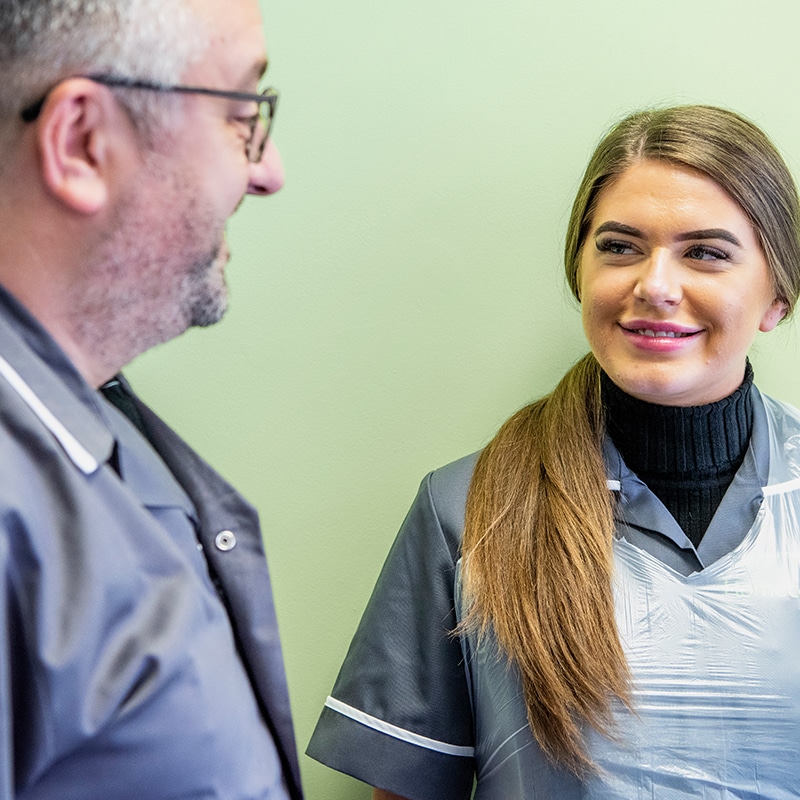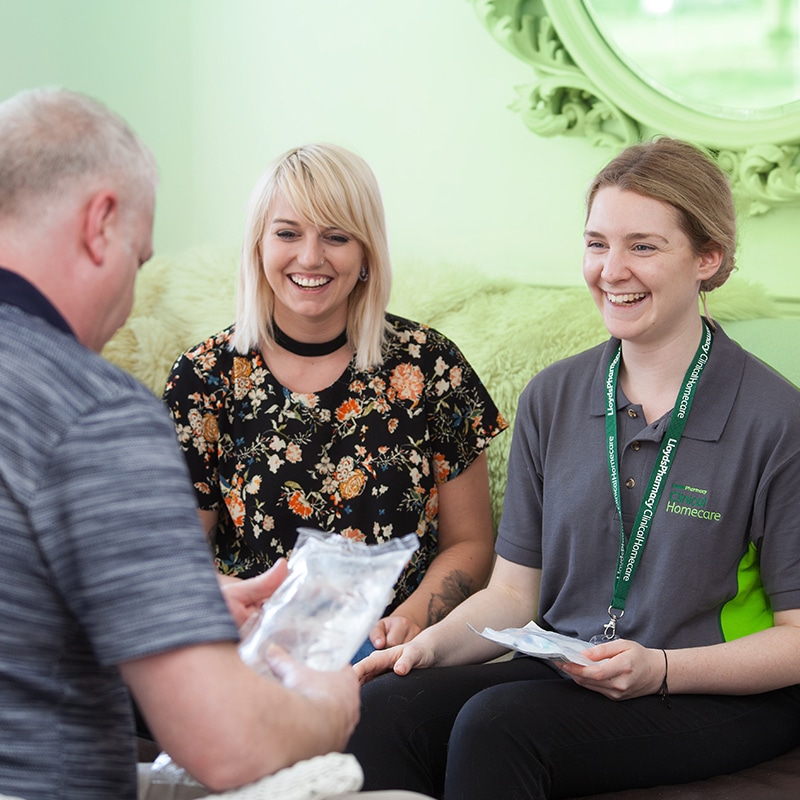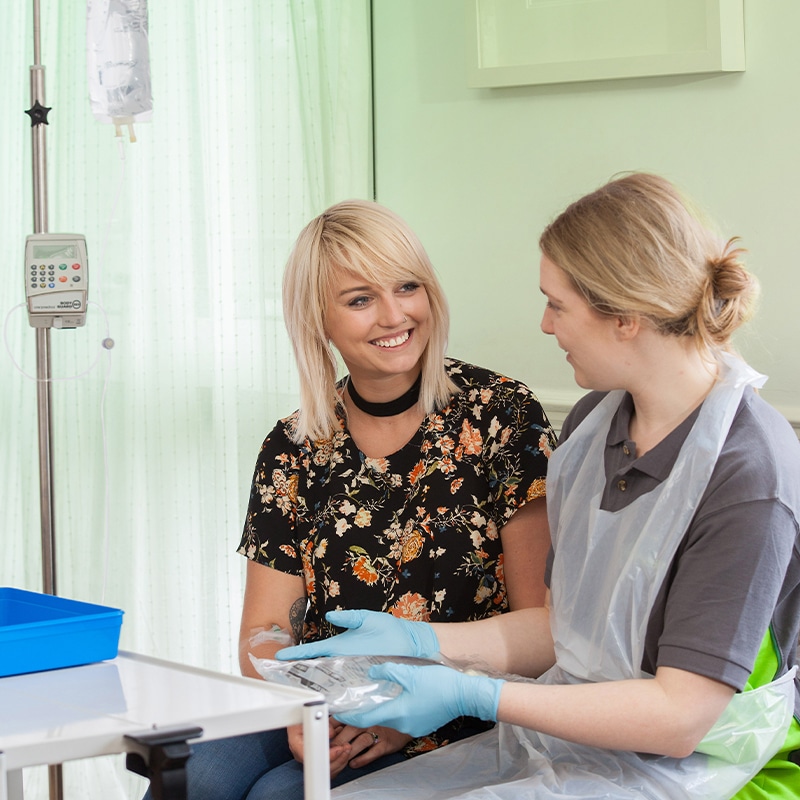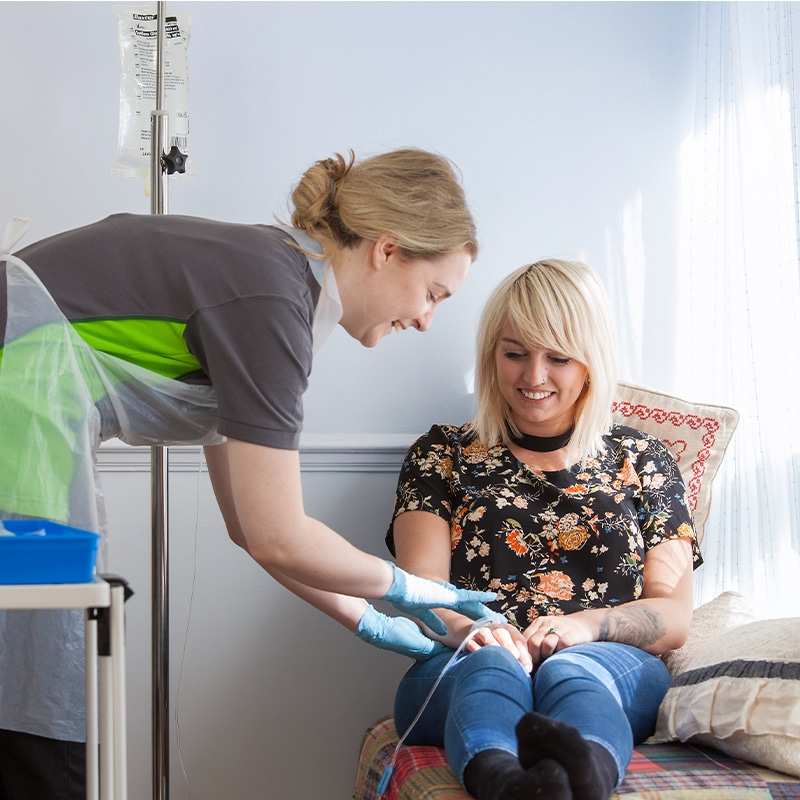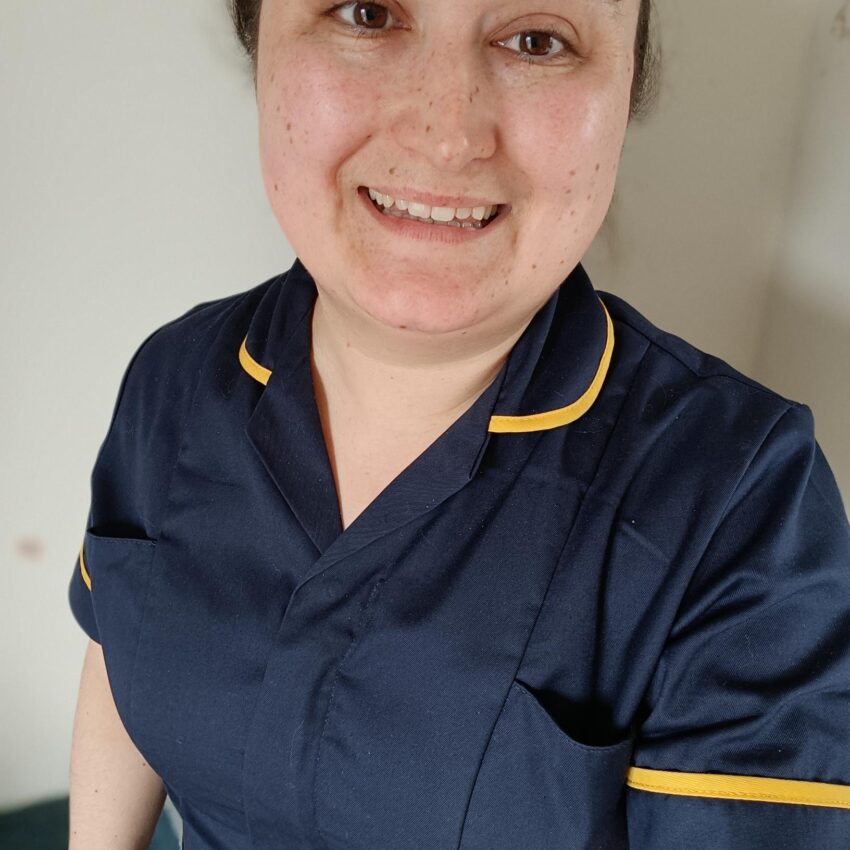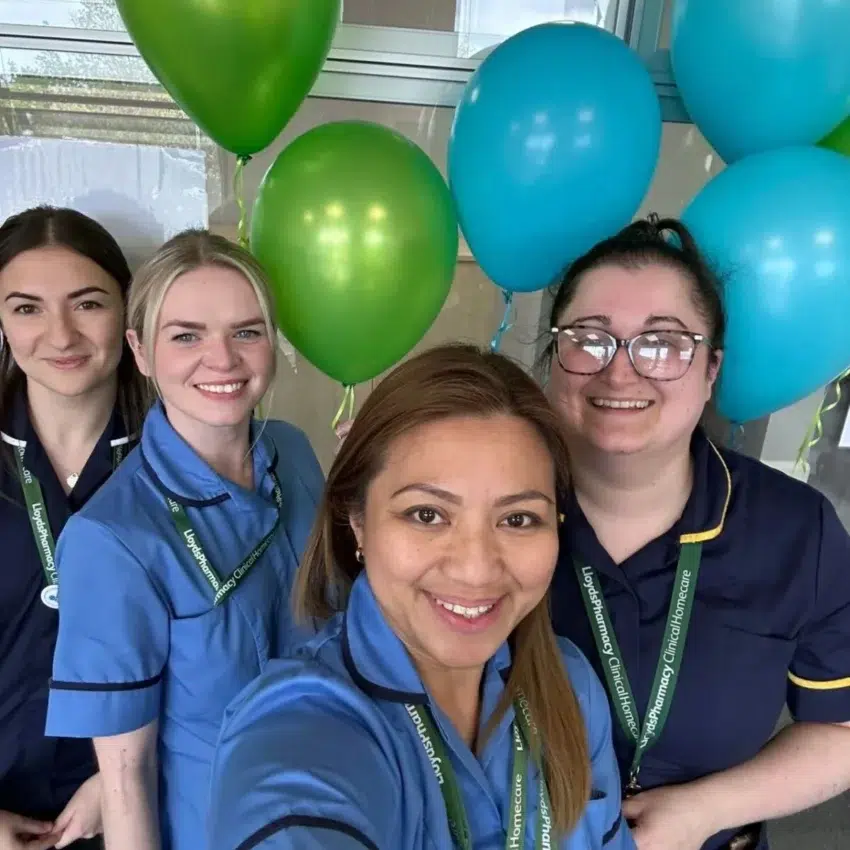Living life alongside Pompe’s disease
‘The condition radically reduces the quality of my life. I have been fortunate that it hasn’t affected my work, which in large part is thanks to homecare’
Being supported by our clinical teams means that Aldwyn can be treated in his office by a nurse, rather than in hospital.
Professor Aldwyn Cooper is CEO and Vice Chancellor of Regent’s University London. He has had an illustrious career in academia which has taken him all over the world, as well as a stint in television production.
Earlier in his life Aldwyn was a keen sportsman – a competitive swimmer, high board diver and international squash player. About 15 years ago, he noticed one day that he wasn’t quite able to run around the squash court as well as he used to, and felt that something may not be quite right. Although most tests showed nothing was wrong, a specialist consultant hypothesised Aldwyn may have a rare case of Pompe’s disease, a genetic condition normally identified in children. After six months of tests, this proved to be the correct diagnosis.
Pompe’s disease affects the body’s ability to process glycogen effectively, leading to impaired organ and muscle function. Over the past 15 years, Aldwyn’s mobility has deteriorated, meaning he can only sustain walking for short periods at a time, regularly needing to take breaks. The condition has also affected his breathing, meaning he has to sleep with a ventilator.
What is Aldwyn’s condition?
- Aldwyn lives with late onset Pompe’s disease.
- Pompe’s disease is a genetic condition that affects the body’s ability to process glycogen effectively, leading to impaired muscle function.
- This means Aldwyn struggles with mobility, particularly when walking significant distances, and also affects his breathing, meaning he has to use a ventilator at night.
How is Aldwyn treated?
- Enzyme Replacement Therapy (ERT)
- Fortnightly, 4 hour, 800ml infusions at the office
- Connection and drug administered by a LPCH nurse
The benefits of clinical homecare for Aldwyn
- The convenience of receiving treatment in his office
- The flexibility of arranging treatment to suit his schedule
- The ability to keep up with the demands of his job
- Avoiding the need for lengthy visits to hospital

How we support Aldwyn
‘The homecare treatment is fantastic. The nurse arrives and connects me with minimal fuss, and I can continue working from my computer while the infusion is going on’
Receiving treatment in hospital was not an option for Aldwyn. Given his position at the university, Aldwyn has a demanding and varied work schedule, working around 80 hours a week. The idea of having to give up four hours every two weeks to visit hospital for treatment was just not feasible. When he was first diagnosed, Aldwyn received his ERT infusions in hospital. Once his body got used to the treatment the option of homecare was raised.
Right from his first nurse visit, Aldwyn has found adjusting to homecare extremely easy. His first LPCH nurse gave clear guidance and direction for how his procedure would run at his office, and was also accommodating to Aldwyn’s busy schedule straight away. Aldwyn arranges with LPCH the times and dates for nurse visits that fit into his work schedule, to minimise disruption and fit as discreetly as possible into his life.
‘The service I’ve experienced from LloydsPharmacy Clinical Homecare has been exceptional; all the nurses have been polished and polite. I can’t thank them enough for the care they provide’
The LPCH nurse arrives and, as is typical even with more complex cases such as ERT, uses their expertise to ensure the infusion is administered smoothly and effectively. This means there is minimal disruption to Aldwyn’s day and he can continue going about his work, even while the infusion is going on.
Improving outcomes
Supported by the our clinical team, Aldwyn has been able to continue his work at great pace. Receiving his treatment in his office is much more convenient, avoiding going to hospital on a regular basis and having to take time out from a busy and productive working life.
Above all, Aldwyn appreciates LPCH’s flexibility and how they think about fitting in to his life and the speed with which they work, acknowledging he wouldn’t have the competence to entirely self-administer as effectively as they do. He even appreciates the small things, such as receiving a text message to confirm the time slot when his infusions arrive. This keeps him on top of his condition, and helps him manage it effectively, despite being in a professional environment. It is also very helpful to have the support and understanding of colleagues and family. Regent’s University London has a strong values system that supports staff and students with disabilities. He values the nurses who visit him and they have helped develop this and have built relationships with Aldwyn’s staff and family to help make the treatment as unobtrusive as possible.
All this makes it easy for Aldwyn to lead a productive working life. Receiving treatment at work has meant that Aldwyn is even able to conduct graduation ceremonies and other formal occasions whilst on the treatment, with minimal fuss.
‘When I was first diagnosed, there were some thoughts that I may have only 18 months to live. Fortunately that turned out to not be the case. I don’t believe I could have continued to lead my day to day life effectively unless I had access to homecare.’
From being flexible enough to accommodate his busy schedule, to ensuring his infusions are pre-mixed for maximum efficiency of treatment, and a reliable delivery schedule for his medication, LPCH provides Aldwyn with the total support he needs to continue living a fulfilled life in academia.
‘I don’t think homecare should be seen as being disruptive to your life. I think it should be viewed as giving opportunities. Without homecare probably I would have had to retire. I wouldn’t have been able to lead the life I wanted to.’
